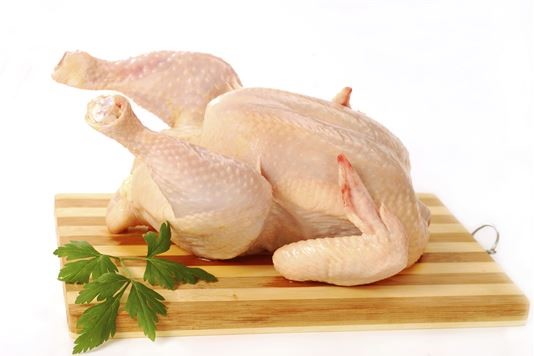FSA 'names and shames' supermarkets over chicken contamination

The Food Standards Agency has released the results of its investigation into campylobacter presence in supermarket chickens.
A new survey by the Food Standards Agency (FSA) found that 70% of chickens in UK supermarkets tested positive for the presence of campylobacter bacteria.
And nearly two in ten (18%) of the samples taken contained over 1,000 colony forming units per gram (>1,000 cfu/g ), which the FSA defines as ‘highly contaminated’. Steve Wearne, FSA Director of Policy, said that the results “show that the food industry, especially retailers, need to do more to reduce [these levels].”
What is campylobacter?
Campylobacter is the most common cause of food poisoning in the UK, affecting over a quarter of a million people every year. Poultry is the main way people can come into contact with the bacteria.
The survey samples
Samples were taken from 1,995 fresh whole chickens, and packaging was also tested. While some retailers are doing better than others, none are meeting the targets set by the FSA for reducing campylobacter.
Chickens at Asda tested positive for campylobacter in 78% of cases, while 28% of those were classed as ‘highly contaminated’ and 12% of the packaging samples also had the bacteria on them. These were the worst results for each category of all the retailers.
Tesco, on the other hand, had the least chickens affected – but still a significant 64%, with 11% ‘highly contaminated’. The full table of results is below.
|
Retailer |
Number of |
% skin samples positive for campylobacter |
% skin samples |
% pack samples positive for campylobacter |
|
Asda |
312 |
78 |
28 |
12 |
|
The Co-operative |
171 |
73 |
19 |
5 |
|
M&S |
68 |
67 |
22 |
4 |
|
Morrison’s |
179 |
69 |
21 |
9 |
|
Sainsbury’s |
300 |
69 |
14 |
3 |
|
Tesco |
607 |
64 |
11 |
3 |
|
Waitrose |
70 |
69 |
16 |
9 |
|
Others* |
288 |
76 |
25 |
7 |
|
Total |
1,995 |
70 |
18 |
6 |
*Others includes retailers like Lidl, Aldi, Iceland and independent convenience stores and butchers etc.
Table source: Food Standards Agency
Working to reduce the issue
Asda, along with its supplier Faccenda, have committed to using new ‘SonoSteam’ technology that ‘blasts’ raw chickens with steam to kill off all the bacteria before chickens are delivered to shops. This is currently being installed in Faccenda’s factory.
Other retailers are introducing ‘roast in the bag’ chickens to reduce the points of contact for the raw meat to spread bacteria.
These results were the findings from the halfway point of the FSA’s survey. It will continue to investigate supermarket chickens until February 2015, at which point action taken over the last few months to reduce campylobacter levels should hopefully be reflected in the next set of findings.
How to avoid campylobacter
Food poisoning can be avoiding by making sure that contaminated boards and utensils are properly washed, and don’t come into contact with other ingredients. Washing your hands and not washing raw chicken also helps to prevent the spread of bacteria.
Storing your chicken correctly (covered and chilled) and cooking the meat thoroughly, ensuring the chicken is steaming hot throughout and juices run clear, is essential. This kills any lingering bacteria that might cause illness.
You might also be interested in:
New FSA study raises further food poisoning concerns
Stricter food regulations for Wales while rest of UK falls behind
Comments
Be the first to comment
Do you want to comment on this article? You need to be signed in for this feature